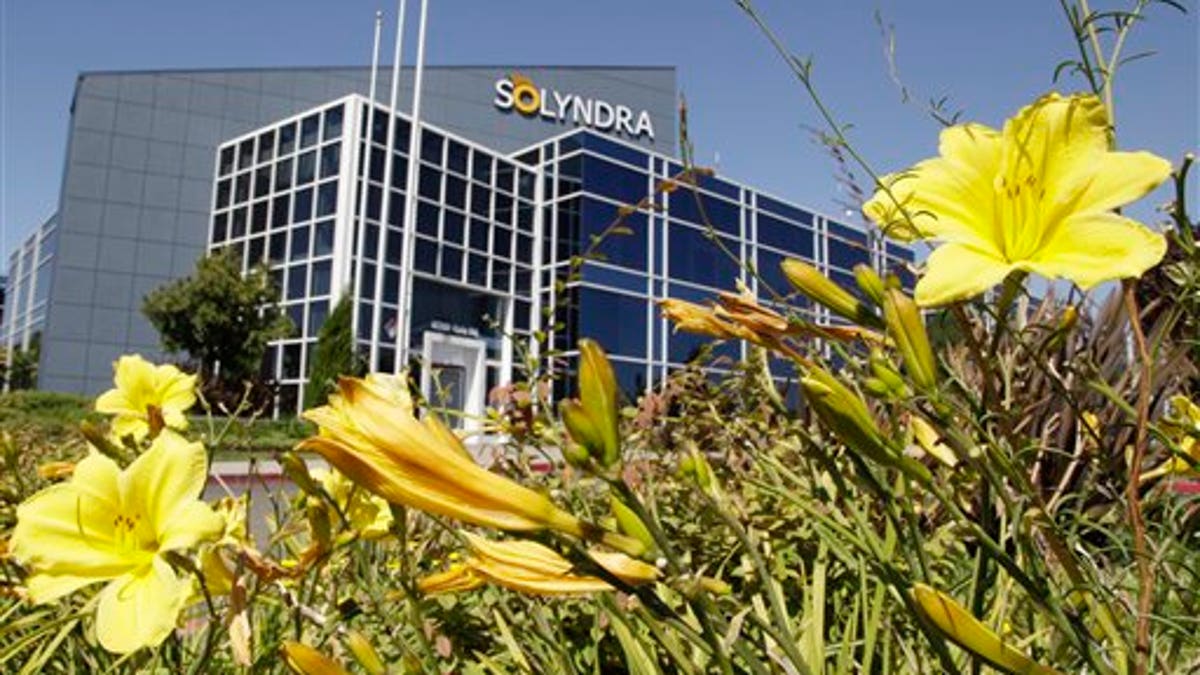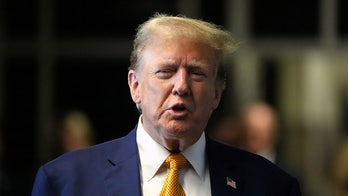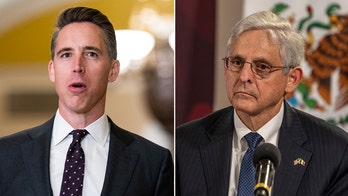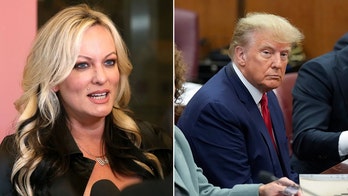
September 8, 2011: This picture shows the Solyndra headquarters in Fremont, Calif. (AP)
Newly released emails show a Democratic donor, as well as officials inside the White House, were expressing concern more than a year ago that now-bankrupt solar firm Solyndra's financial situation could deteriorate and prove "embarrassing" for the Obama administration.
The emails were released Monday by a Republican-led House panel looking into Solyndra, which filed for bankruptcy last month after receiving nearly $530 million in federal government loans. As with other internal emails that have been disclosed as part of the investigation, the documents reflected uneasiness with Solyndra among those inside and near the administration.
A Democratic fundraiser, in a May 2010 email, warned the White House to be "careful" about a planned trip by Obama to the California company.
Steve Westly, a Silicon Valley investor and Energy Department adviser, said in the email that he and others were worried that Solyndra might not "survive long-term."
Westly urged Obama to reconsider the trip, but said that if the president did visit the company, he should avoid any remarks "that could haunt him in the next 18 months if Solyndra hits the wall, files for bankruptcy etc."
In the May 24, 2010 email to White House senior adviser Valerie Jarrett, Westly said, "I just want to help protect the president from anything that could result in negative or unfair press."
Two days later, Obama traveled to Solyndra's Fremont, Calif., headquarters.
Rep. Cliff Stearns, R-Fla., chairman of the House subcommittee looking into Solyndra, said in a statement that the documents "raise significant concerns."
"Documents gathered during the committee's investigation reveal those closest to the president in the West Wing ... had direct involvement in the Solyndra mess, and that the administration was fully aware of numerous red flags about Solyndra's viability, but pressed ahead anyway in an effort to secure a policy or political victory," he said. "The Democrats deny that any political influence was involved, yet in their own memo they highlight the role of Obama fundraiser Steve Westly in the discussions."
President Obama said Monday he does not regret the loan, saying officials always knew a clean energy loan program would not back winners 100 percent of the time.
"There are going to be some failures, and Solyndra's an example," Obama said in an ABC News interview. Asked whether his administration had ignored warnings about Solyndra, he said: "Well, hindsight is always 20-20."
The Solyndra loan, which was approved in 2009, "went through the regular review process and people felt like this was a good bet," Obama said in his first comments on the loan that has caused a headache for his administration.
The Silicon Valley company was the first renewable-energy company to receive a loan guarantee under a stimulus-loan program to encourage green energy and was frequently touted by the Obama administration as a model. Energy Secretary Steven Chu attended the company's September 2009 groundbreaking for a new manufacturing plant, and Vice President Joe Biden spoke by satellite at the ceremony.
The company's implosion and revelations that the administration hurried Office of Management and Budget officials to finish their review of the loan in time for the 2009 groundbreaking have become an embarrassment for Obama.
Even so, the administration has pushed forward with loans, awarding more than $6 billion in the past week alone for seven projects. In all, the clean energy loan program has awarded 28 loans worth more than $16 billion since 2009.
As for the documents released by Republicans, Rep. Henry Waxman, D-Calif., and other Democrats said the documents received by the committee so far do not support Republican allegations of political favoritism toward Solyndra.
Instead, the Democrats said the documents show there was "vigorous internal debate" among officials at the Energy Department and the White House budget office about the Solyndra loan guarantee that eventually included senior officials in the White House.
"The decisions involving Solyndra were made on the merits with no regard to the identity of the private investors," the Democrats said.
Even so, the documents reveal details that are likely to embarrass the White House.
Word of Obama's planned visit to Solyndra led one budget official to quip, in an email: "Hope (Solyndra) doesn't default before then."
Two days before Obama's trip, another OMB official wrote, "I am increasingly worried that this visit could prove embarrassing to the administration in the not too distant future."
The official noted that Solyndra had just informed federal officials it was delaying its initial public offering of company stock because of concerns about its finances.
The official also cited a March 2010 auditor's report expressing doubt that Solyndra could continue as a "going concern."
According to the Democratic memo, Jarrett responded to Westly's email by contacting Ron Klain, Biden's chief of staff. Klain responded that he would look into the issue, writing: "We clearly need to make sure that they are stable and solid."
Klain then contacted officials at the Energy Department, who defended Solyndra. Matt Rogers, a senior Chu adviser, wrote that the "`going concern" remark was standard for companies about to go public. Rogers predicted that "the company should be strong going into the fall with their new facilities on line."
Klain forwarded the response from Rogers and another DOE official to Jarrett, adding that while "there are some risk factors here," he thought "it looks like it is OK to me."
Jarrett replied, "I'm comfortable if you're comfortable."
Klain later sent an email declaring that if Obama "visited 10 such places over the next 10 months, probably a few will be belly-up by election day 2012."
He dismissed any problem that would cause by saying such risks were inherent in the administration's support for "cutting edge, new economy industries."
Obama echoed that reasoning in his television interview Monday, saying that if the U.S. abandons clean energy such as advanced battery manufacturing or electric cars, "then we aren't going to be able to make stuff here in the United States of America."
The Associated Press contributed to this report.




